Curated OER
Pieces of Mind: Remembering What Matters
Pupils watch the program "Pieces of Mind" from PBS and participate in a class discussion about PET scans and their advantages. Students then brainstorm activities a PET scan could be used for.
Curated OER
What Does Your "Homunculus" Look Like?
Students determine the density of touch receptors in various parts of the body on the right hand side. They use collected data to draw a picture of the
"homunculus" of an experimental subject.
Curated OER
OUtside Influence
Students identify factors that are important for brain functioning of learning. They observe the impact of interaction in mice. They also create their own experiment dealing with the mice. They analyze and share their results.
Curated OER
Taste and Smell
Students experiment to determine classmates taste and smell to find out which sends the clearest message to the brain.
Curated OER
Movies Are Us
Students watch a movie, and answer teacher created questions in order to explore the brain.
Science Buddies
Science Buddies: Project Ideas: How Does Animation Timing Affect Your Perception
In this video and computer game science fair project, students will discover how changing the timing between different frames of an animation can change a player's perception of how powerful a video game punch is. The Science Buddies...
Science Buddies
Science Buddies: What Conflicting Mental Tasks Reveal About Thinking
Can you pat your head with one hand while you rub your stomach with the other? This experiment is kind of like that, but it can actually give you some insight into how your mind works. The task is to name colors. It sounds simple enough,...
Science Buddies
Science Buddies: Shaping Your Thoughts?
This is an experiment that explores certain aspects of how your brain pays attention. In this project, you'll have to recruit volunteers to take a simple test: naming a list of printed shapes. What makes the test tricky is that words...
Science Buddies
Science Buddies: Warped Words and the Stroop Effect
The Stroop effect describes an experiment about the time it takes to name the color of printed words. When you try to name the color in which color words are printed, it takes longer when the color word differs from the ink color than...
Science Buddies
Science Buddies: Are You Left or Right Sided?
Our brains are split into two parts, right inside our head. One half is the left brain and the other half is the right brain. Each side of your brain controls different parts of your body and most people are more dominant controlling one...
Science Buddies
Science Buddies: Pinocchio's Arm: A Lie Detector Test
You might be surprised to learn that you have been practicing skills closely tied to lying if you have ever seen someone in pain, or mimicked your favorites sports athlete. In this science fair project, you will discover how your brain...
Science Buddies
Science Buddies: Do Males and Females Play the Same Types of Games?
There are many different types, or genres, of computer and video games. This includes racing, fighting, sports, adventure, and puzzle games. Survey your classmates in this science fair project to find out if certain genres of games...
Science Buddies
Science Buddies: Fast Food: Can Peppermint Improve Reaction Times?
Did you know that some teachers give their students a peppermint candy on state testing days? Is it to give the kids sweet-smelling breath? Or are the teachers hoping for something more on the important testing day? In this human biology...
Georgia Department of Education
Ga Virtual Learning: Psychology: Biological Foundations
Virtual learning course on human biology and brain function and how it affects our behaviors. Extensive collection of engaging materials, assignments, and activities for review.
Other
Coping Skills for Kids: Brain Works Project
How the brain works and how it ties to coping skills in the pre-teen are the focus of this website. Informative links for both students and adults.
American Museum of Natural History
American Museum of Natural History: Trip Up Your Brain
Try this trippy experiment to fool your brain.
Scholastic
Scholastic News: Rat Mind Meld
This article describes how scientists connected the minds of two rats using electronic sensors.
PBS
Pbs Teachers: Test Your Brain
Investigate the effect of oxygen deprivation on brain function and test the changes in mental abilities climbers experience as they climb to ever-higher altitudes, in this virtual experiment.
Other
Society for Neuroscience: Brain Facts [Pdf]
This is a publication on the human brain and how it works. Gives details on the neuron, how the senses interact with the brain and much more. PDF (requires Adobe Reader).
PBS
Pbs Teachers: Scientific American: Make Up Your Mind: Mind Mapping
Investigate the pseudoscience of phrenology and its attempt to organize and assign different purposes to different parts of the brain. Create a phrenology chart on a bathing cap and compare it to modern understanding of brain function...
PBS
Pbs Teachers: Scientific American: Make Up Your Mind: The Stroop Effect
Describe how the Stroop Effect influences the brain's ability to simultaneously process conflicting information. Conduct a test where subjects are required to identify the font color of words that name a different color (the word "red"...
CommonLit
Common Lit: Text Sets: Psychology and the Mind
The mind has fascinated and mystified humans for millennia. Delve into the science behind the brain with these works on philosophy, foundational psychology, and scientific studies. This collection includes 61 Grade-Leveled texts (6-12)...
Other
Coping Skills for Kids: Amazing Brain Facts
Did you know your brain has enough power to illuminate a light bulb? Featured at this fun site are 20 amazing facts you can learn about your brain.
PBS
Pbs Teachers: Scientific American: Superhumans & Bionics: Mind Over Machine
Investigate a unique project that uses brain waves to operate machines, and perform biofeedback experiments to control physiological processes. Control hiccups and regulate your body temperature with your mind.





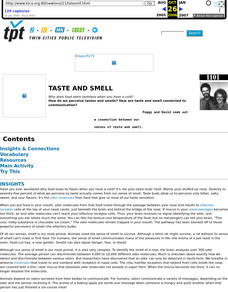

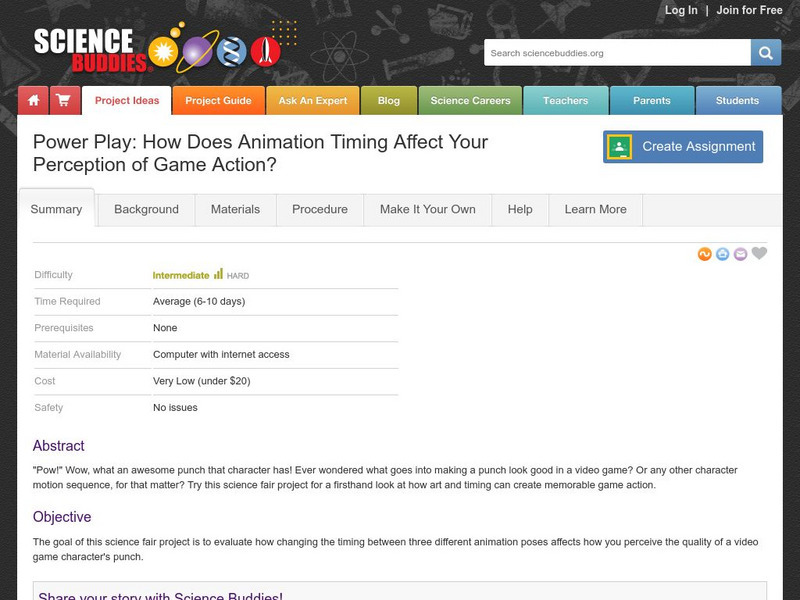
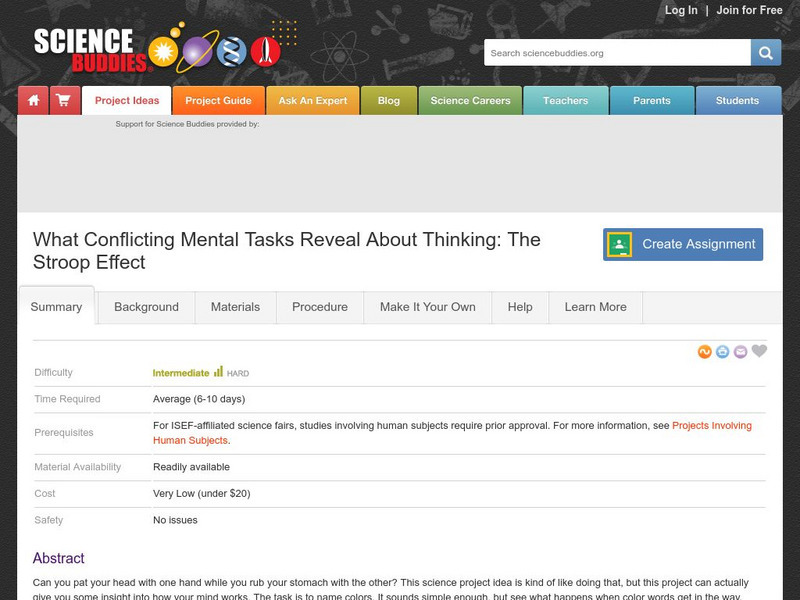
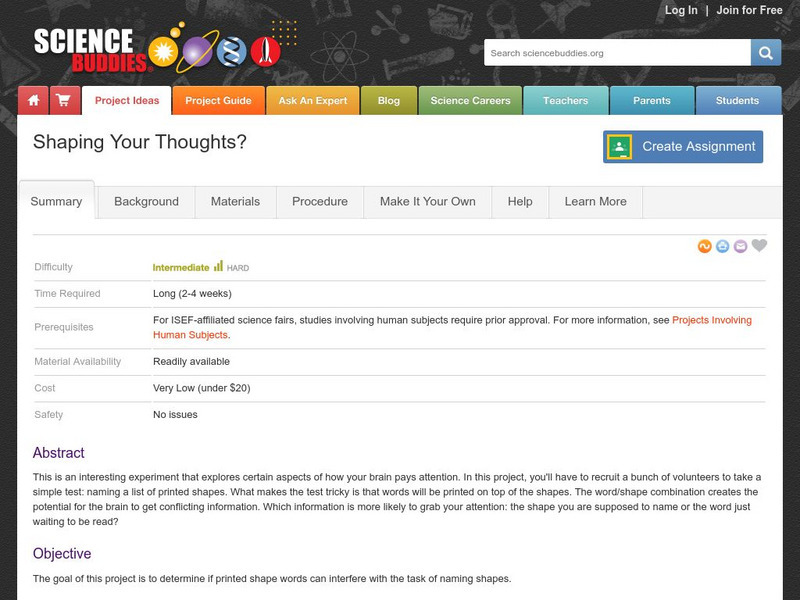

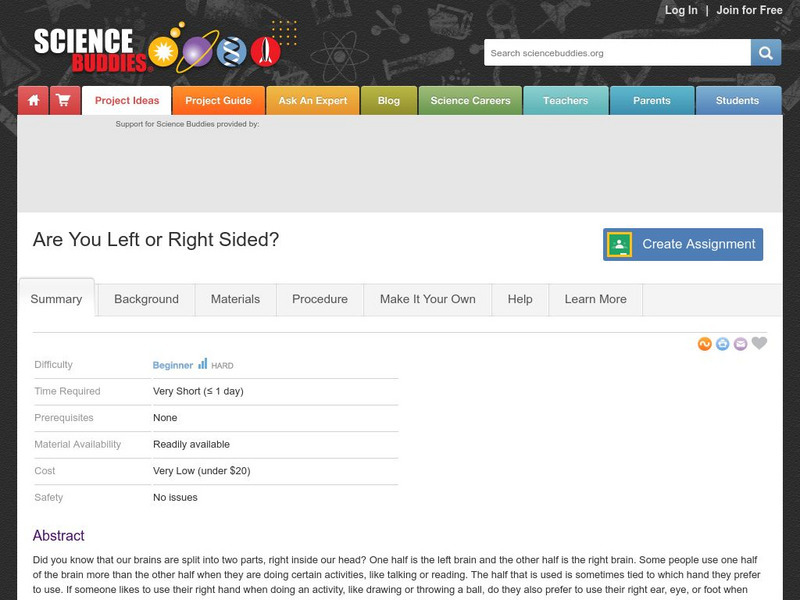
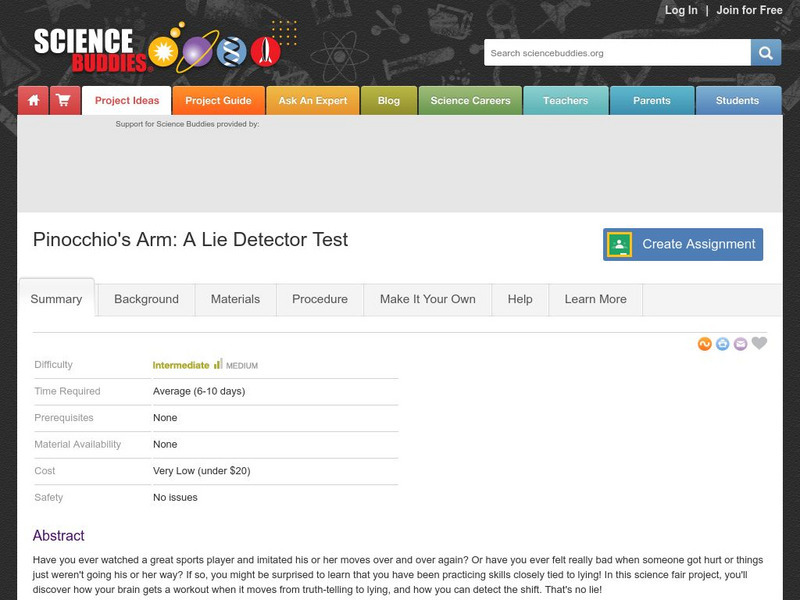
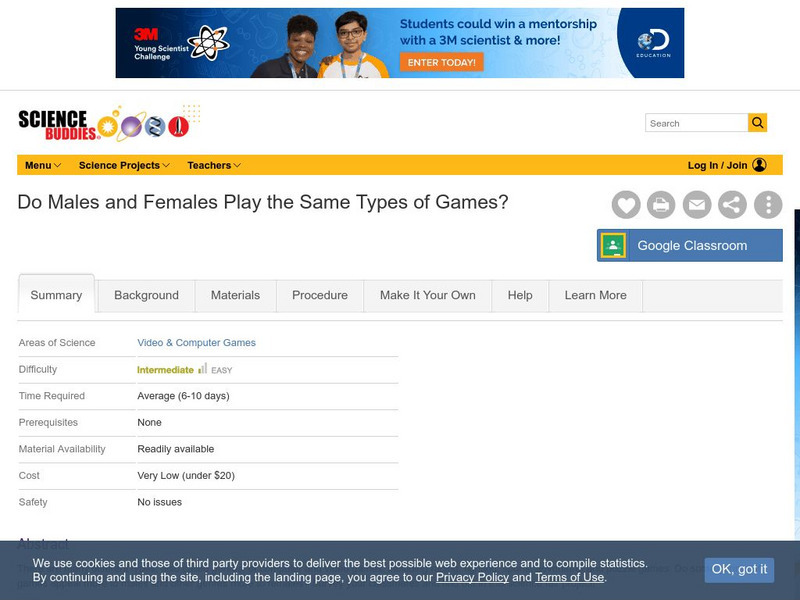




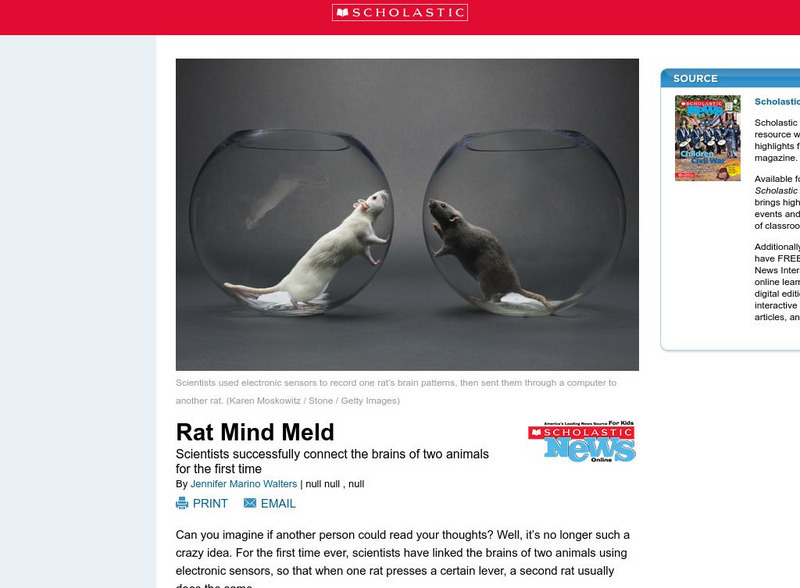

![Society for Neuroscience: Brain Facts [Pdf] Activity Society for Neuroscience: Brain Facts [Pdf] Activity](https://content.lessonplanet.com/knovation/original/113866-cd2169bec6c0105fc678c671521bd642.jpg?1661266885)


